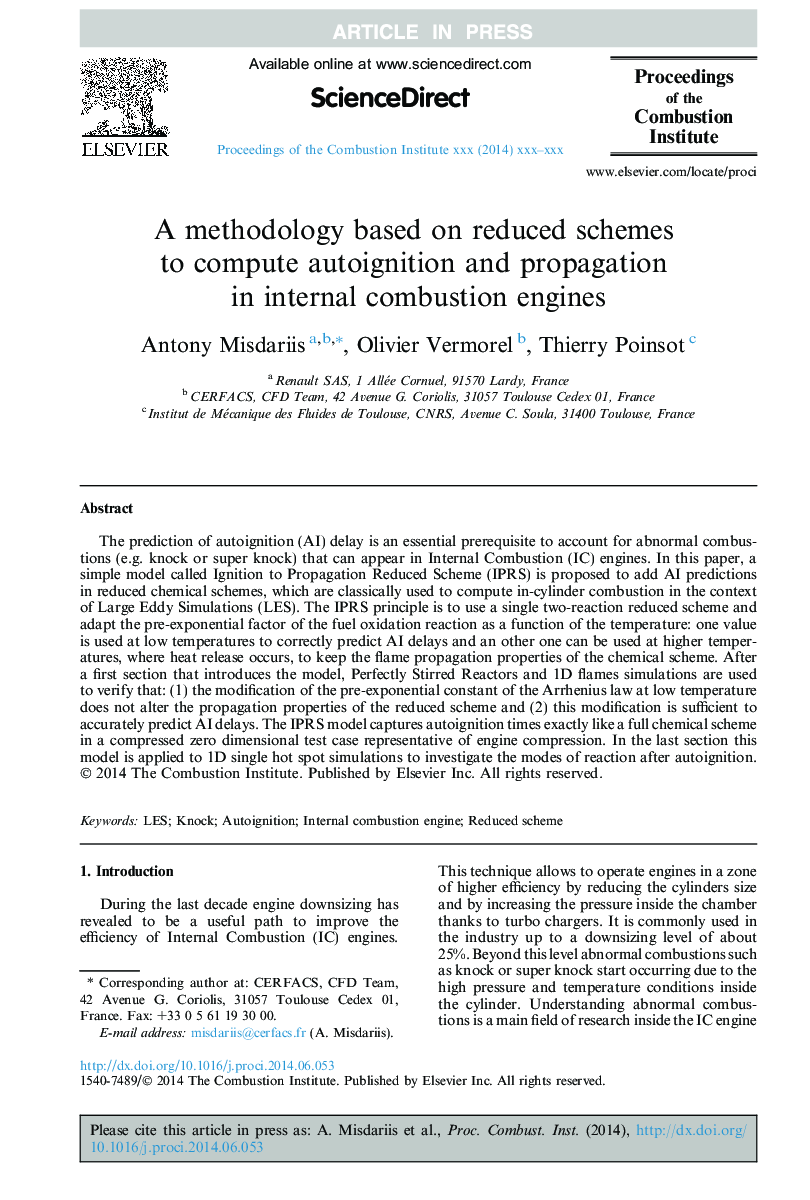| Article ID | Journal | Published Year | Pages | File Type |
|---|---|---|---|---|
| 4915553 | Proceedings of the Combustion Institute | 2015 | 8 Pages |
Abstract
The prediction of autoignition (AI) delay is an essential prerequisite to account for abnormal combustions (e.g. knock or super knock) that can appear in Internal Combustion (IC) engines. In this paper, a simple model called Ignition to Propagation Reduced Scheme (IPRS) is proposed to add AI predictions in reduced chemical schemes, which are classically used to compute in-cylinder combustion in the context of Large Eddy Simulations (LES). The IPRS principle is to use a single two-reaction reduced scheme and adapt the pre-exponential factor of the fuel oxidation reaction as a function of the temperature: one value is used at low temperatures to correctly predict AI delays and an other one can be used at higher temperatures, where heat release occurs, to keep the flame propagation properties of the chemical scheme. After a first section that introduces the model, Perfectly Stirred Reactors and 1D flames simulations are used to verify that: (1) the modification of the pre-exponential constant of the Arrhenius law at low temperature does not alter the propagation properties of the reduced scheme and (2) this modification is sufficient to accurately predict AI delays. The IPRS model captures autoignition times exactly like a full chemical scheme in a compressed zero dimensional test case representative of engine compression. In the last section this model is applied to 1D single hot spot simulations to investigate the modes of reaction after autoignition.
Related Topics
Physical Sciences and Engineering
Chemical Engineering
Chemical Engineering (General)
Authors
Antony Misdariis, Olivier Vermorel, Thierry Poinsot,
